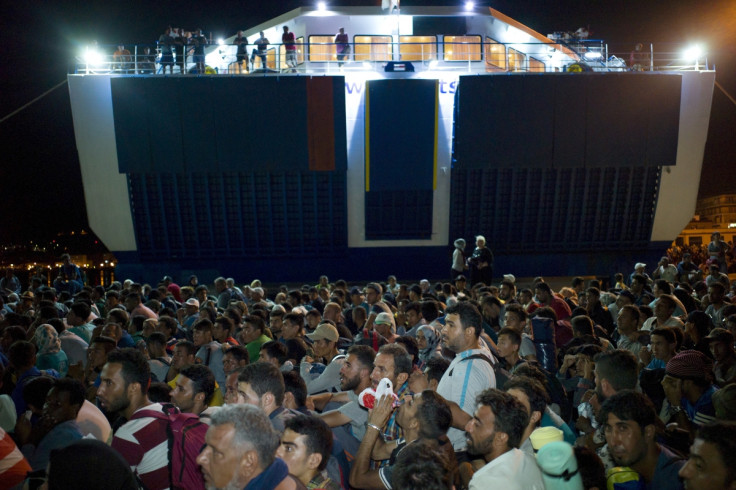Refugee crisis: Pressure increases on UK to allow more asylum seekers due to EU rule change

The rule whereby refugees need to register in the first European country they enter looks set to be abolished posing a headache for David Cameron ahead of Britain's EU referendum.
Known as the Dublin regulation, the rule has been widely ignored during the migrant crisis with refugees landing on beaches in Greece and Italy, and heading towards richer countries in Europe.
But the Financial Times has reported there is a move for reform, after Greece in particular, was criticised for not providing basic facilities for refugees. This would shift the burden of taking in refugees to countries in northern Europe.
One argument of the British campaign to remain in the EU is that the current regulations allow the UK to deport asylum-seekers if Britain is not the first European country that they arrived. Any change in EU policy could mean both more migrants coming to the UK and greater difficulty in being able to send anyone back.
"This change would appear to provide an incentive for asylum-seekers to get across the Channel," a spokesman for Vote Leave told the newspaper, adding, "this is further evidence that as part of the EU the UK does not have control over migration or asylum policy".
Much will depend on the detail about how the new rules will work. With no land border with any other country in the passport-free Schengen zone, Britain may not see a strong surge in migration.
The Dublin system was already undermined last September when German Chancellor, Angela Merkel, lifted her country's right to return Syrian refugees to the first country of entry.
But on Tuesday (19 January) conservative lawmakers urged Merkel to reverse her open-door refugee policy as a poll showed a slide in support for her bloc, raising the stakes for a German chancellor exposed by deep rifts in her right-left coalition, Reuters reported.
With three regional elections in March, Merkel is facing the toughest spell of her 10-year chancellorship over her handling of the refugee crisis. She had already called for the EU to revise the Dublin rules to cope with the refugee challenges.
Also on Tuesday (19 January) the leader of the EU, Donald Tusk said that the collapse of the passport-free Schengen Area could be imminent.
He told Deutsche Welle: "We have no more than two months to get things under control," adding that if the 28-member union could not control its external borders, the EU would, "fail as a political project."
Over 31,000 refugees have entered Europe by sea across the Mediterranean route since the beginning of 2016 with the majority of people coming from Syria, Afghanistan and Iraq, the International Organization for Migration reported Tuesday.
The number so far is 21 times greater than last year, showing that refugees escaping violent and repressive states continue to undertake dangerous journeys to Europe even in the middle of winter.
© Copyright IBTimes 2025. All rights reserved.





















